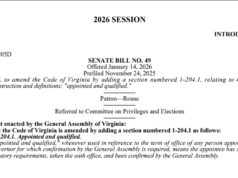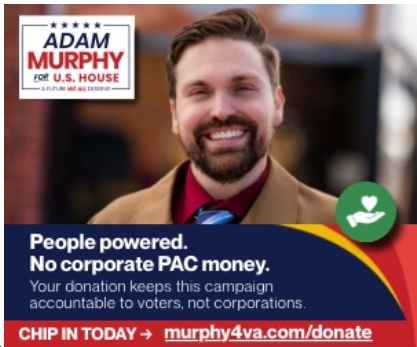( – promoted by lowkell)

With the fights over high-profile, controversial bills related to reproductive rights laws in the General Assembly last year, a number of other seismic bills slipped through the media coverage cracks. On the education front, a bill allowing for tax credits to be granted to individuals giving scholarship donations to private schools passed through relatively easily and is expected to pass state constitutional muster. What this means, ultimately, is that tax dollars normally received into the general fund for public education will now be diverted to private schools that have more discriminatory leeway. It is expected that this controversial policy will survive legal challenges.
Much has been made in the coverage of education issues nationally of the so-called “Education Reform” movement. It's taken many forms, from the carrot-stick approach of the Obama/Arne Duncan-favored “Race to the Top,” to a straight-up, market-based voucher program, such as the one passed in the state of Louisiana last year where the per pupil funding follows the pupil to any public or private school. All of these plans claim to have the student at the center of any reforms. Neither really gives much say to the teachers, or parents who want their students to have the best teachers rather than the smartest sounding business plan. In both cases, the less power the teacher has, the better. While vouchers place teachers at the whim of market forces while also allowing for taxpayer-funded vouchers to be spent on religious education (as the Virginia bill is expected to do and the Louisiana bill did to wacky extremes), “Race to the Top” has quietly imposed upon school systems a number of controversial classroom “innovations,” including more high-stakes testing (despite the President's own admonishment of “teaching to the test”), the expansion of privately-run charter schools (who are in turn given low oversight of their activities, and have proven to be no better, if not worse than public schools), online schools (many of which, while attractive to technophiles and pitched as good options for students who have an attention deficit, are ineffective at best), and merit pay programs that demand job instability for teachers in exchange for school funding.
The lack of a true teacher's union to front a campaign against the introduction of policies that undercut public schools and divert taxpayer dollars to private corporations in the name of “reform” has meant that this issue hasn't gotten the attention it has seen in large states like California and New York, or even in neighboring DC a few years back during the Michelle Rhee era. Rhee's own organization, StudentsFirst, has continued to garner much of the coverage of school reform coverage. Perhaps no other event has best called into question the methodology and motives of these so-called “reformers” as this week's release of her organization's education rankings. Missing from her metrics were one seemingly obvious one: student success. Instead, she focused on issues like charter prevalence, elimination of tenure privileges for teachers, making it easier to fire teachers, allowance for student “choice” (read: availability of vouchers), and controversial “trigger laws.” The “trigger laws” are a perfect example of the deceptiveness of these sorts of reformers. As portrayed in the recent movie Won't Back Down, these laws allow for parents to vote to overhaul failing public schools. What their proponents hope parents don't realize (and what is never addressed in the film) is that this typically would involve shutting down the school, firing the entire staff, or selling off the school to a corporation interested in seeing what they can squeeze out of a public asset (h/t to my friend Liza Featherstone, whose takedown of that film and what it promotes can be read here).
We know that what ultimately mattes is student outcomes. The assumption is that by introducing market reforms, schools will compete to educate the best and parents will choose the best school for their children the way they may choose the best car for their family. Results thus far have been mixed. No one denies that a child at a failing school would be better off at a more robustly funded school, public or private. What isn't clear is that privately run schools using taxpayer funds (the charters) are any better than the traditional public schools. Why give away taxpayer funds to private firms if they're not creating a better return that our current firms? One may argue that it's strictly a cost issue, but that argument is flimsy as well. Many charters, including online charters, have turned into money pits.
So why bring this up right now in Virginia if what's done is done on these tax credits for private school scholarships? Aren't we just resigned to the fact that tax dollars are going to get diverted to schools that might be teaching religious doctrine that we find repugnant? As mentioned before, it's unlikely that legal challenges will put a dent in this. But there's still a long ways down the road to a corporate-run education system, and lawmakers on both sides are pushing for us to move further down it. Where does Terry McAuliffe stand on this? Does he agree with some of the more controversial parts of “Race to the Top”? Would he have stood with the entire Democratic Senate Caucus in voting against the voucher-like plan passed last year?
Speaking of the Senate, we do know where two candidates for statewide office stand on this issue. Both Senators Ralph Northam and Mark Herring voted with the rest of the Senate Democratic Caucus against diverting tax dollars to private schools, only to watch the bill pass thanks to Lt. Governor Bill Bolling.
And speaking of the Lt. Governor position, there's another high-profile candidate in the Democratic race for that position, one who deserves a good questioning with regards to our public education system and its funding. Aneesh Chopra seems progressive enough on most issues. It's no secret he loves talking tech policy. Any Virginia Democrat who has seen him speak knows this. Voucher proponents and reform advocates (such as high profile educational tech advocate Jeb Bush) often point to new educational tech frontiers such as online schools as a major part of their strategy. But why mention this in the context of an ostensibly progressive Democrat? Perhaps because he is the only candidate for statewide office who has donated money to a high-profile Republican who has championed and passed one of the most far-reaching and controversial school voucher programs in America. According to the Washington Post, Chopra donated to Louisiana Governor Bobby Jindal in 2004, as he was beginning his ascent towards becoming one of the highest-profile right wing advocates of a very different sort of education system.
It's worth making this a must-discuss issue for all candidates in 2013. Does Virginia want a well-funded, non-corporatized, non-discriminatory public school system staffed by quality teachers? Or do we want change of the Bobby Jindal sort? Let the 2013 education policy test begin.












